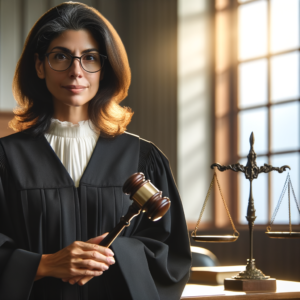Unveiling the Hidden Threats to Our Constitutional Protections
[caption id="attachment_71134" align="alignnone" width="820"] Judge[/caption]
In an era marked by rapid societal changes and technological advancements, the sanctity of constitutional protections faces unprecedented challenges. While the Constitution serves as the bedrock of American democracy, ensuring fundamental rights and liberties, subtle threats have emerged that risk undermining these essential safeguards. This article delves into the multifaceted nature of these threats, examining legislative practices, technological encroachments, judicial interpretations, and the vital role of grassroots movements in preserving our constitutional rights.
Understanding the Foundations of Constitutional Protections in Modern Society
The Constitution of the United States stands as a testament to the principles of democracy, liberty, and justice. Enshrined within its framework are the Bill of Rights and subsequent amendments that collectively safeguard individual freedoms against governmental overreach. In modern society, these protections are not merely historical artifacts; they are living principles that guide the conduct of both citizens and the state. However, as the complexities of contemporary life evolve, so too do the interpretations and applications of these rights. Understanding the foundational elements of constitutional protections is crucial for recognizing their relevance in addressing current societal issues, including civil rights, freedom of speech, and the right to privacy.
Identifying the Subtle Erosion of Rights in Legislative Practices and Policies
In recent years, legislative practices have increasingly come under scrutiny for their role in eroding constitutional rights. Lawmakers, often under the guise of public safety or national security, have introduced policies that encroach upon individual freedoms. For instance, the expansion of surveillance programs and the implementation of restrictive voting laws have raised alarms about the potential infringement on privacy and democratic participation. These measures, while sometimes framed as necessary for the greater good, often disproportionately affect marginalized communities, leading to a gradual erosion of rights that can go unnoticed until it is too late. Recognizing these subtle shifts is essential for advocating for accountability and transparency in legislative processes.
The Role of Technology in Compromising Civil Liberties and Privacy Rights
As technology continues to advance at a breakneck pace, its implications for civil liberties and privacy rights cannot be overstated. The proliferation of digital surveillance, data collection, and social media has created an environment where personal information is increasingly vulnerable to exploitation. Government agencies and private corporations alike have access to vast troves of data, often without the explicit consent of individuals. This reality raises profound questions about the balance between security and privacy, as well as the potential for abuse of power. The challenge lies in navigating this digital landscape while ensuring that constitutional protections remain intact, fostering a culture of respect for individual rights in the face of technological innovation.
Analyzing the Impact of Judicial Decisions on Constitutional Safeguards
Judicial decisions play a pivotal role in interpreting and upholding constitutional protections. However, recent rulings have sparked debates about the direction of constitutional law and its implications for individual rights. The Supreme Court, in particular, has been a battleground for contentious issues such as reproductive rights, gun control, and campaign finance. Decisions that expand or contract the scope of constitutional protections can have far-reaching consequences, shaping the legal landscape for generations to come. It is imperative to analyze these judicial outcomes critically, as they reflect not only the prevailing legal philosophies but also the societal values that influence the interpretation of the Constitution.
Grassroots Movements: Mobilizing Public Awareness Against Eroding Protections
In response to the growing threats to constitutional protections, grassroots movements have emerged as powerful agents of change. These organizations and coalitions mobilize public awareness, advocate for policy reforms, and hold lawmakers accountable for their actions. By harnessing the collective power of concerned citizens, grassroots movements have successfully challenged unjust laws, promoted civil rights, and fostered a renewed commitment to constitutional values. The rise of social media has further amplified these efforts, allowing for rapid dissemination of information and the organization of protests and campaigns. As these movements continue to gain momentum, they serve as a reminder of the importance of civic engagement in safeguarding our constitutional rights.
Strategies for Strengthening and Preserving Our Constitutional Rights Today
To counter the myriad threats facing constitutional protections, a multifaceted approach is necessary. First, fostering public education about constitutional rights is essential to empower citizens to recognize and defend their liberties. Additionally, advocating for legislative reforms that prioritize transparency and accountability can help mitigate the erosion of rights. Engaging in the electoral process and supporting candidates who prioritize civil liberties can also create a more favorable political landscape. Furthermore, leveraging technology for good—such as using secure communication tools and advocating for data privacy laws—can help protect individual rights in the digital age. By employing these strategies, society can work collectively to strengthen and preserve the constitutional rights that are foundational to democracy.
The threats to constitutional protections are real and multifaceted, requiring vigilance and proactive engagement from all sectors of society. By understanding the foundations of these rights, identifying erosive practices, and mobilizing grassroots efforts, citizens can play a crucial role in safeguarding the liberties that define American democracy. As we navigate the complexities of modern life, it is imperative to remain steadfast in our commitment to constitutional protections, ensuring that they endure for future generations. The preservation of these rights is not merely a legal obligation; it is a moral imperative that reflects the values of justice, equality, and freedom that lie at the heart of our nation.
